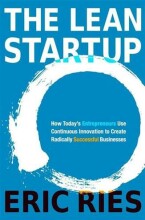Summary: Anthropological Theory : An Introductory History | 9780078034886 | R Jon McGee, et al
- This + 400k other summaries
- A unique study and practice tool
- Never study anything twice again
- Get the grades you hope for
- 100% sure, 100% understanding
Read the summary and the most important questions on Anthropological theory : an introductory history | 9780078034886 | R. Jon McGee, Richard L. Warms.
-
1 Evolutionism
This is a preview. There are 3 more flashcards available for chapter 1
Show more cards here -
What did Morgan and Tylor and other anthropological evolutionists thought?
Lewis Henry Morgan, Edward Burnett Tylor and other anthropological evolutionist thought of change as a process of societies going from one stage of development to the next.
-
theoretical approaches as critique for evolutionists
historical particularism, diffusionism, andfunctionalism -
What do societies go to according evolutionism?
Societeies go to a number of successive stages. It is a process of unilinear (based on the general idea that all societies evolved through the same stages and were progressing towards civilization and it was rooted in the comparative method) change.
o Morgan: Savagery à barbarism à civilization
o Tylor: animism à polytheism à monotheism
-
What was the highest state in evolutionism?
- The highest stage, invariably, was Victorian England or nineteenth-century USA.
- This approach was therefore clearly ethnocentric.
-
What were strong points with evolutionism?
A strong point was to integrate all societies into one whole. Another strong point was that despite the differences in development of various societies, all humans belonged to one species and were essentially the same. Precisely because of the difference between cultures and the unilineal development path, all human societies had to have an equal amount of human skills (intelligence etc).
-
1.1 Additional theory
This is a preview. There are 15 more flashcards available for chapter 1.1
Show more cards here -
what is a paradigm?
When a certain theory has a relatively broad applicability and many followers, it is useful to speak of a theoretical school of thought or a theoretical paradigm -
definition of a paradigm by kuhn
Paradigms are ‘universally recognized scientific achievements that for a time provide model problems and solutions to a community of practitioners’ (Thomas Kuhn) -
characteristics of a good paradigm
• Accurate and precise statements• Internally consistent• Large span• Simple, bringing order in the chaos• Fruitful, stimulating new ideas -
1.2 Critiques
This is a preview. There are 10 more flashcards available for chapter 1.2
Show more cards here -
What were the four biggest critiques on evolutionism?
1. The ethnocentrism: best developed societies are the best. Measured by technological advances.
2. Strong focus on change (neglecting the way societies achieved a degree of stability)
3. The way each known society was forced to fit into prefabricated evolution schemes (in other words: evolutionists operated from a weak empirical basis).
4. The way constitutive elements of a society (kinship, economy, politics, religion) were studied in isolation from each other (e.g. kingship systems are compared between different societies, but kingship was not studied together with the political, economic and ecological factors within one particular societies)
-
1.4 Herbert Spencer
This is a preview. There are 14 more flashcards available for chapter 1.4
Show more cards here -
natural selection (darwin)
the most succesful in procreation will survive
- Higher grades + faster learning
- Never study anything twice
- 100% sure, 100% understanding
Topics related to Summary: Anthropological Theory : An Introductory History
-
Evolutionism - Morgan
-
Evolutionism - Marx & Engels
-
Foundations of sociological thought - historical particularism
-
Foundations of sociological thought - functionalism
-
Foundations of sociological thought - culture and personality
-
Historical Particularism - Neomaterialism : evolutionary, functionalist, ecological and marxist
-
Historical Particularism - Critique on the study
-
Culture and Personality - sociobiology, evolutionary psychology, and behavioral ecology
-
Culture and Personality - anthropology and gender
-
Culture and Personality - background to postmodernism
-
Culture and Personality - postmodernism and its critics
-
Functionalism - Malinowski vs Radcliffe Brown
-
Transactionalism - Max Gluchman
-
Transactionalism - Bailey
-
Neo-evolutionism, neo-materialism - Neo-evolutionism/ neo-marxism
-
Neo-evolutionism, neo-materialism - Cultural materialism
-
Neo-evolutionism, neo-materialism - Sociobiology
-
Neo-evolutionism, neo-materialism - Gender and anthropology
-
Neo-evolutionism, neo-materialism - Rappaport
-
Neo-evolutionism, neo-materialism - Historical Materialism
-
Symbolic and interpretice anthropology - Clifford Geertz

































